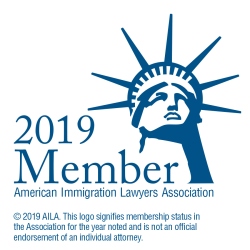Many people think of immigration reform only in the context of the dispute about undocumented immigrants. Lost in all the discussions about whether or not the undocumented should be allowed a “path to citizenship” is the discussion about the major changes needed in employment-sponsored immigration.
Each April, high tech companies and other employers needing skilled workers compete in the “H-1B lottery” for a chance to employ foreign workers. Each year, thousands of employers lose this competition, after gambling thousands of dollars on legal fees and other expenses. For example, during the first week of April, 2014, US Citizenship and Immigration Services received some 172,000 H-1B visa applications for some 85,000 available H-1B visas. USCIS accepted 85,000 plus some margin to cover expected denials. The remaining application packages were rejected and returned to the employers or their attorneys.
I have a theory that the scarcity of H-1B visas has led to some of the recent US credit card data breaches. For example, during the 2013 Christmas shopping season, millions of Target customers learned that their identities had been compromised through their use of credit cards at Target. This serious scandal has recently led to the resignation of Target’s CEO, Gregg Steinhafel.
My theory that this could have been averted if more H-1B visas were available is based on the fact that most European countries long ago switched to a more secure chip-and-PIN technology, instead of the current magnetic stripe system still used on most US credit cards. I believe that if more high tech workers had been able to obtain H-1B visas, the US may have used these workers to assist in switching to the more sophisticated technology much sooner.
This firm has prepared H-1B applications for high tech workers, graphic artists, behavioral analysts, convention managers, biotech workers and many others who are badly needed by their employers. The employers are required to pay these employees the “prevailing wage.” In fact, from time to time we have had to tell employers that the US Department of Labor will require them to pay the foreign employees more than they pay US workers in similar positions! Clearly, the employers would not go through the costly and time-consuming uncertainty of preparing and submitting an H-1B application, then waiting to see if their application is accepted in the H-1B lottery, if there were sufficient US workers available for these positions.
The H-1B workers do not take jobs from Americans; instead they create jobs. For example, a factory that can hire H-1B workers as engineers will not only employ American workers to build the products, but also spur the American economy as the workers buy homes, cars and other major purchases, as well as day-to-day needs such as food and clothing.
Congress needs to take action to increase the availability of H-1B visas, so that Americans’ identities can be more secure and so that American businesses can remain competitive in the global marketplace.




